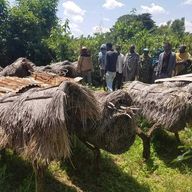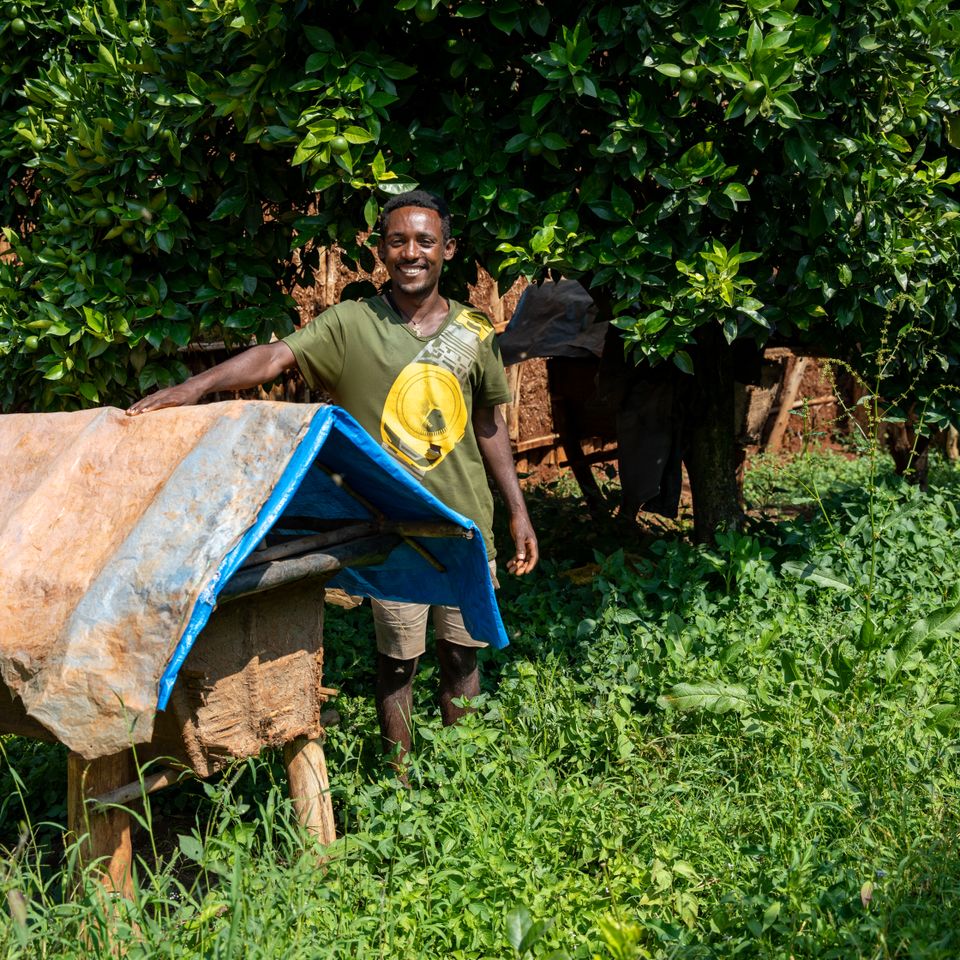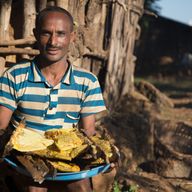
The Amhara region of Ethiopia is one of the poorest places in the world. Half of all families are without jobs or land, meaning they have no way of growing food. The problem doesn’t stop there. Children are forced to skip school and instead exchange their labour for food.
A solution to help in the region was to introduce communities to beekeeping. Not only a brilliant way to earn a living, but support nature too. Providing beekeeping skills is both sustainable and scalable. It can provide skills for a lifetime.
There are some great (and rather important) benefits of this beekeeping industry, like…
- Environmental sustainability
- World food security and improved nutrition
- Offering options to fight pathways out of poverty, as well as wider economic growth and employment in connected areas like agriculture
- Gender equality and empowerment for women and girls
- Supporting climate change as the beekeeping sector uses relatively little fossil fuels
Our Bees, Trees and People work has helped some of the world’s poorest people to harness the power of bees, to improve their lives and their surrounding environment. Our partnership with Bees For Development also seeks to restore the forests that underpin beekeeping livelihoods.
Bees for Development have a tried and tested approach, which is:
- All beekeeping equipment is no cost or low cost, making it manageable for the future
- Using local skills and offering brilliant training
- Using local bees and materials, keeping it sustainable
- Ensuring access to good markets for honey and beeswax
Since we launched our training programme in 2018, we’ve all been busy bees…
- 270 PEOPLE gained beekeeping skills for life on a 2-year programme in 2018
- 120,000 TREES planted in 2019
- 540 FAMILIES lives have changed since starting the project
- 1000 NEW BEE COLONIES are now being tended by our trained beekeepers
- 80 HECTARES of land has been reforested so far
The effects of the land reforestation has had community-wide impact. The beautiful land around Lake Tana, Ethiopia supports many people with its natural resources. Much of the region’s tree cover has been removed, and the land grazed heavily by livestock. Without vegetation, floodwaters wash away precious soil, endangering life and degrading the land. Bees for Development have helped to bring a part of the region back to life, restoring degraded land for people, trees and bees.
The local residents of Ysala have planted many thousands of seedlings. To be precise, they have planted a living fence of trees to mark and protect their area.
People all over the world depend on nature and bees to live – nowhere more so than in Ethiopia. So, we’re not stopping – we are extending work to a new landscape in Alehuay, Ethiopia.
Our commitments and targets for the next 3 years in this area…
- Reforest 20 hectares of degraded watershed and bee forest
- Improve life for 3,127 people living in this area
- Plant 40,000 bee trees, providing food for bees
- Train 100 landless youth in beekeeping, giving them an income for life
Saving nature and bees as if our lives depended on it …. because they do!

